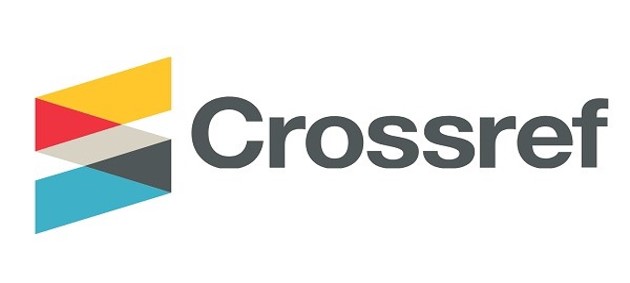Relationship of Blood Groups to the Incidence of Hyperuricemia and Hyperglycemia
DOI:
https://doi.org/10.51173/jt.v3i4.383Keywords:
ABO, Blood Sugar, Diabetes Mellitus, Glucose, Uric AcidAbstract
Several experiments have been carried out to estimate the relationship between blood grouping types and the occurrence of diabetes, but not hyperuricemia. The effects of the potential correlation between the ABO blood groups and the incidence of these cases have been recorded in this study. The aim of this study is to see whether there is a connection between ABO blood groups and the occurrence of hyperuricemia and hyperglycemia among samples of Iraqi patients. This research was carried out in Educational Laboratories/Medical City (Baghdad Governorate). The research was carried out of the ABO blood with age range (40-70) years, ABO blood group was performed by the sliding method, while uric acid and glucose blood levels were measured by utilizing an enzymatic procedure. There are significant differences in the levels of uric acid between blood groups (A and AB) and blood groups (A and O), while the levels of serum glucose were highly significant between blood groups (B and AB) and blood groups (AB and O). It is concluded that blood groups type AB could be the most vulnerable to the occurrence of hyperuricemia and hyperglycemia. However, further investigations with consideration to Rhesus factor Rh are required.
Downloads
References
Owen R. Karl Landsteiner and the first human marker locus. Genetics. 2000 July; 155(3):995-998.
Yamamoto F. ABO blood group system--ABH oligosaccharide antigens, anti-A and anti-B, A and B glycosyltransferases, and ABO genes. Immunohematology. 2004; 20(1):3-22.
Zhang H., Mooney C. J., Reilly M. P. ABO blood groups and cardiovascular diseases. International journal of vascular medicine. 2012 October; vol. 2012, Article ID 641917, 11 pages, https://doi.org/10.1155/2012/641917.
Meo S.A., Rouq F.A., Suraya F., Zaidi S.Z. Association of ABO and Rh blood groups with type 2 diabetes mellitus. Eur Rev Med PharmacolSci. 2016 February; 20(2):237-242.
Villegas-Valverde, C. C., Kokuina, E., & Breff-Fonseca, M. C. Strengthening national health priorities for Diabetes prevention and management. MEDICC review. 2018 October; 20(4):5-5.
Hammer M., Storey S., Hershey D.S., Brady V.J., Davis E., Mandolfo N., Bryant A.L., Olausson J. Hyperglycemia and Cancer: A State-of-the-Science Review. Oncol Nurs Forum. 2019 July; 46(4):459-472.
Mouri M, Badireddy M (2020). Hyperglycemia. StatPearls [Online]. Available from: https://www.ncbi.nlm.nih.gov/books/NBK430900.
George C, Minter DA (2020). Hyperuricemia. StatPearls [Online]. Available from: https://www.ncbi.nlm.nih.gov/books/NBK459218.
Gois P.H.F.; E.R. Souza de M. Pharmacotherapy for hyperuricaemia in hypertensive patients. The Cochrane Database of Systematic Reviews. 2020 September; 9(9) Art. No.:CD008652.
Sun, S. Z., Flickinger, B. D., Williamson-Hughes, P. S., & Empie, M. W. Lack of association between dietary fructose and hyperuricemia risk in adults. Nutr Metab (Lond). 2010 March; 7(16):12 pages.
Yamamoto T., Moriwaki Y., Takahashi S. Effect of ethanol on metabolism of purine bases (hypoxanthine, xanthine, and uric acid). Clinica Chimica Acta; International Journal of Clinical Chemistry. 2005 June; 356(1–2):35–57.
Yamamoto T. Definition and classification of hyperuricemia. Nippon Rinsho (in Japanese). 2008 April; 66(4):636–640.
Barkas F., Elisaf M., Liberopoulos E., Kalaitzidis R., Liamis G. Uric acid and incident chronic kidney disease in dyslipidemic individuals. Current medical research and opinion, 2018 September; 34(7):1193-1199.
Öner C., Doğan B., Telatar B., Çelik Yağan C.F., Oğuz A. Frequency of ABO/Rhesus blood groups in patients with diabetes mellitus. 2016 January; 26(1):74-75.
Fagherazzi G., Gusto G., Clavel-Chapelon F., Balkau B., Bonnet F. ABO and Rhesus blood groups and risk of type 2 diabetes: evidence from the large E3N cohort study. Diabetologia. 2015 March; 58(3):519-522.
Ewald D.R., Sumner S.C. Blood type biochemistry and human disease. Wiley Interdisciplinary Reviews: Systems Biology and Medicine. 2016 September; 8(6):517-535.
Kamil M., Al-Jamal H.A.N., Yusoff N.M. Association of ABO blood groups with diabetes mellitus. Libyan Journal of Medicine. 2010 February; 5(1):4 pages.
El-Sayed M.I.K., Amin H.K. ABO blood groups in correlation with hyperlipidemia, diabetes mellitus type II, and essential hypertension. Asian J Pharm Clin Res, 2015 August; 8(5):236-243.
Gillum R.F. Blood groups, serum cholesterol, serum uric acid, blood pressure, and obesity in adolescents. Journal of the National Medical Association. 1991 August; 83(8):682-688.
Downloads
Published
How to Cite
Issue
Section
License
Copyright (c) 2021 Abbas Mehsen Gata, Sumayah Faruq Kasim, Sarah Mohssen Mohammed, Jaleel Samanje

This work is licensed under a Creative Commons Attribution 4.0 International License.

















